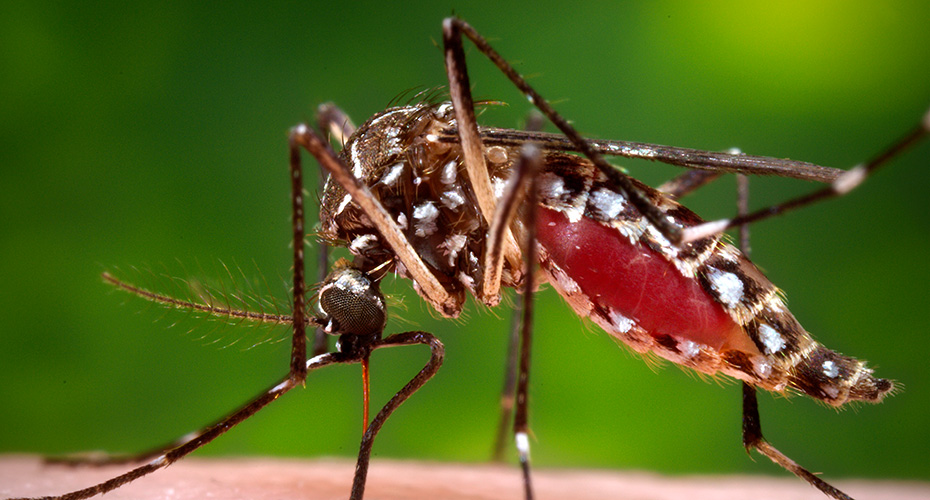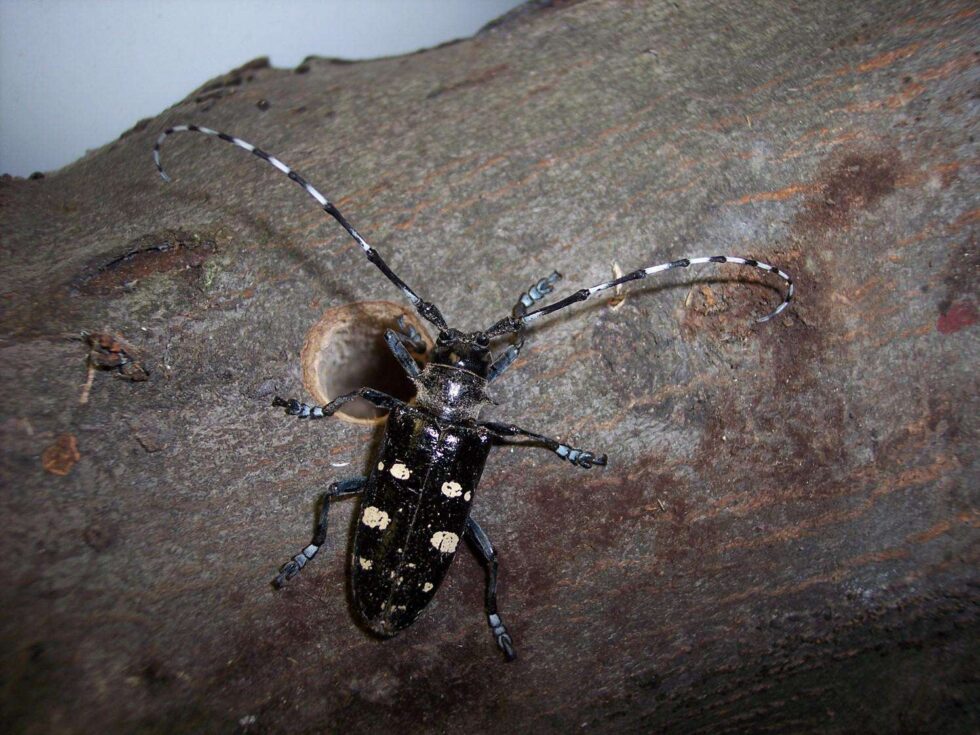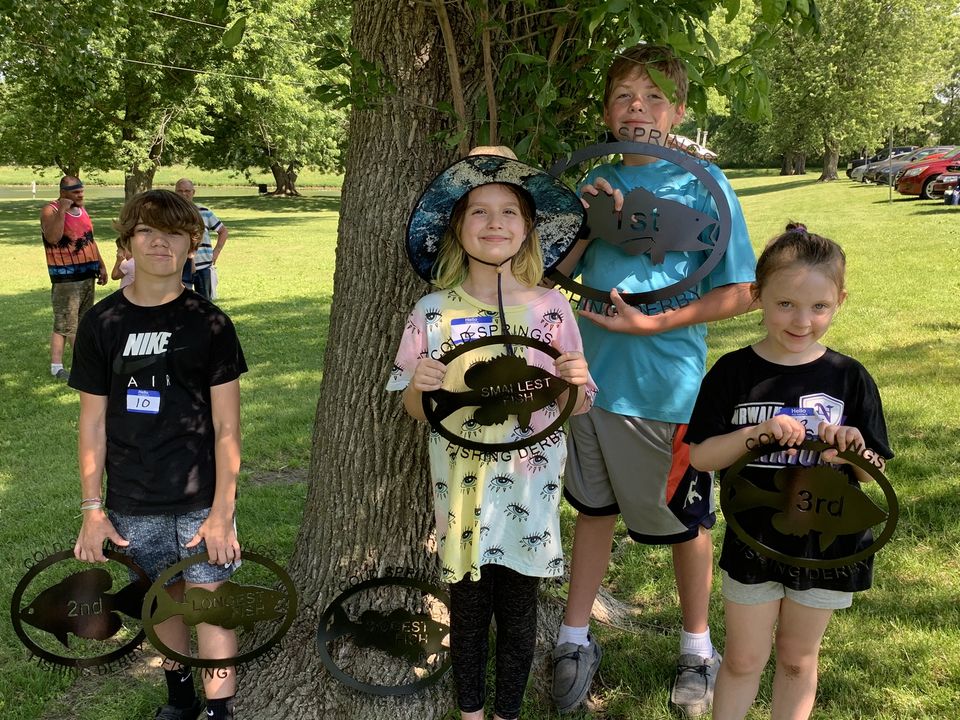CLICK HERE for the latest market quotes from the Iowa Agribusiness Network!
CLICK HERE for the latest market quotes from the Brownfield Ag News Network!
CLICK HERE for the latest market quotes from the Iowa Agribusiness Network!
CLICK HERE for the latest market quotes from the Brownfield Ag News Network!
(Des Moines, Iowa) – Officials with the Montgomery County Extension Office in Red Oak, report Clayton and Jan Castle Renander of Montgomery County were inducted into the 2024 Iowa 4-H Hall of Fame during a ceremony at the 4-H Exhibits Building at the Iowa State Fair on Sunday, Aug. 18. Ninety-three Iowa counties participated this year and selected 125 inductees for their outstanding service and dedication to 4-H. Inductees or their surviving family members were presented a certificate by the Iowa 4 H Foundation President, Jeff Murphy, and State 4-H Program Leader, Mitchell Hoyer, as they were introduced on stage.
To say that Clayton Renander grew up with 4-H is, literally, the truth. His father, the late Carol Renander, began the Grant Spitfires 4-H Club, serving as its first leader. Consequently, 4-H has been a part of Clayton’s life from the beginning. As a member of the Grant Spitfires 4-H Club, Clayton participated in all club activities and has fond memories of 4-H meetings, especially playing outside with friends AFTER the meeting. Clayton’s main 4-H projects were his first love, cattle. While he never showed a grand champion, he loved the experience, from raising and feeding the cattle, to showing them in the ring. After graduating out of the Grant Spitfires, Clayton assumed the role of leader and soon became beef superintendent for the county fair. He held that position for more than 20 years. His children, Karl and Kate, participated in numerous 4-H activities but cattle were always their dad’s highlight. Clayton also served with the Extension Council and lent his expertise to any 4-H question posed to him, sometimes even when no one asked!
Unlike Clayton, Jan did not grow up with 4-H. Her introduction to 4-H and county fair began as an adult. Her first newspaper job was in the small town of New Albany, Mississippi, where she experienced the Union County Fair. In spring of 1985 Jan moved to Iowa as editor of the Red Oak Express. That summer she experienced her first Montgomery County Fair. After her first county fair experience, Jan determined to improve fair pictures. She was the first newspaper person to meet with county fair show superintendents to solicit their help. Working with Lynn Benson, county extension agent at that time, she developed the first picture board – a 10’x8’ wood frame covered in off-white canvas. When Jan and Clayton’s children joined 4-H, Jan learned how fun it is to be a 4-H mom! After Karl and Kate had graduated and Jan had left the newspaper, she continued to offer workshops for 4-H photography, helped mount pictures for judging, and became a 4-H photography judge herself, judging numerous county fairs and at the Iowa State Fair.

Photo courtesy Katie Hart, Montgomery County Extension
Counties select inductees for their exceptional work in contributing to the lives of 4-H members and the overall 4-H program. Many inductees serve as club leaders, youth mentors, fair superintendents or fair board members, Iowa State University Extension and Outreach county council members, county youth council members, fair judges, financial supporters, chaperones or ISU Extension and Outreach staff members. The inductees have demonstrated dedication, encouragement, commitment and guidance to Iowa’s 4-H’ers through the years.
“We are honored to recognize these special individuals, for their advocacy and dedication to the Iowa 4-H program,” shared Iowa 4-H Foundation Executive Director, Emily Saveraid.
“This is a great way to honor the volunteers and staff across the state of Iowa that generously give their time and talents to foster positive partnerships with our 4-H youth,” said Tillie Good, Iowa 4-H staff and volunteer development manager.
The Iowa 4-H Hall of Fame was initiated in 2002 to help commemorate the 100th anniversary of 4-H. A summary of previous honorees was on display at the 2022 Iowa State Fair in the 4-H Exhibits Building. These summaries are also available at the Iowa 4-H Foundation office in the Extension 4-H Youth Building at Iowa State University. Information about previous inductees to the Iowa 4-H Hall of Fame also is available on the Iowa 4-H Foundation website, organized by year and by county. Go to www.iowa4hfoundation.org/ and under the heading “What We Do” select “Recognizing Service” then “Iowa 4-H Hall of Fame.”
(Radio Iowa) – The State Hygienic Lab has confirmed the first case of West Nile Virus this year in a man in Harrison County. Iowa State University entomologist Ryan Smith oversees the state’s mosquito surveillance program. “This year has been somewhat interesting in the fact that as we got into May and early June, we didn’t see a whole lot of mosquito activity,” he says, “and then later in June, especially as when we started seeing some of the heavy rainfall and flooding, really, across the state, and with that, I think we saw a big explosion of our mosquito numbers.”
The rains ended the drought and left the water that is key for mosquito breeding. “Mosquitoes take advantage of standing water. Any kind of flowing or moving water doesn’t allow for the juvenile stages of mosquitoes to survive, and so they really do thrive on that flooded or standing water in many of these locations,” Smith says. “And especially those counties that were impacted the most, especially out in western Iowa. I think we’ve seen really high numbers.”
He experienced the mosquito explosion first hand. “We’ve actually responded to some of the flooding that occurred in Sioux County this year, and you know, we saw really high numbers, and it doesn’t surprise me that we would have that kind of carry on, and many of the other affected areas that we kind of been able to trap in,” Smith says. Smith says there’s been an increase in disease carrying mosquitoes as well as those that are simply a nuisance. “Those are ones that will bite us, you know, and they’re going to be annoying, and, you know, that’s why we call them a nuisance,” He says. “Whereas others can actually kind of do the same. They can bite humans, but they can also transmit disease. And those are the ones that you know, at least from my perspective, that we really do worry about.”
The state Health Department recommends you dump out standing water to help cut the number of mosquitoes. Smith says that does work. “These mosquitoes usually don’t travel very far, and so if you can reduce places where they might breed, then more than likely you’re also going to reduce the impact of where you might find adult mosquitoes,” Smith says.
The Health Department also recommends that you wear mosquito repellent when outdoors to prevent mosquito bites. Mosquitoes are most active at dawn and dusk. The Health Department says those infected with West Nile may not experience any signs or symptoms of the virus. Some people experience minor symptoms like fever and mild headache, while others can develop serious symptoms such as a high fever, headache, disorientation, and muscle weakness. There were 17 confirmed cases of West Nile virus in 2023, and one death.
(Iowa DNR News) – Several hunting seasons are set to begin at the end of this week (Aug. 31st) and on Sept. 1st, in Iowa. According to the Iowa Department of Natural Resources, Iowa’s rabbit and squirrel hunting season opens this coming Saturday (8/31). The DNR says “The good news for Iowa’s cottontail rabbit hunters is that Iowa has an abundant rabbit population, with the southern half of the state seeing the best overall numbers.”
Last year, an estimated 19,600 hunters harvested nearly 68,500 cottontail rabbits. The most popular way to hunt is with a shotgun walking brushy areas with grass next to crop fields in the morning or evening. It can be done individually or with a group of friends. Cottontail rabbit season is Aug. 31 to Feb. 28, 2025. The daily limit is 10 rabbits with a possession limit of 20. Jackrabbit season is closed. While wearing blaze orange clothing is not required to hunt rabbits, it is recommended. Shooting hours for rabbits is sunrise to sunset.
Local squirrel populations vary depending upon nut production and it appears to be a good nut year in many areas. Squirrels will be found around hickory trees, oaks and walnuts for their food resources. Hunters will generally find plenty of squirrels and little competition. The DNR says it would also be a good opportunity to do some scouting for a spring turkey hunt or to look for whitetail deer rubs before bow season. Squirrel season is Aug. 31 to Jan. 31, 2025, with a daily bag limit of six total or combination of red fox squirrels or eastern grey squirrels and a possession limit of 12.
Hunters looking for places to go rabbit or squirrel hunting should use Iowa’s online hunting atlas at www.iowadnr.gov/hunting, with more than 600,000 acres of public land that allows hunting.
In addition, Iowa’s Dove and Teal hunting season opens on Sept. 1st. Dove season is Sept. 1-Nov. 29. Shooting hours are one half hour before sunrise to sunset. Daily bag limit is 15 (mourning or Eurasian collared) with a possession limit of 30.
Hunters are reminded that their gun must be plugged to hold no more than three shells. If hunting public areas north of I-80, hunters should check to see if nontoxic shot is required. The Iowa online Hunting Atlas at https://www.iowadnr.gov/Hunting/Places-to-Hunt-Shoot identifies all county, state and federal land open to hunting, zone information and nontoxic shot requirements.
All dove hunters are required to register with the migratory Harvest Information Program (HIP). It’s free, fast and the information is used to help determine participation and harvest. Go to www.iowadnr.gov/Hunting/Migratory-Game-Birds to register.
Iowa’s statewide teal only hunting season is Sept. 1-16, providing hunters of all ages and experience an opportunity to enjoy time in the wetlands, ahead of the regular duck season. Only teal are legal during this season and shooting hours are from sunrise to sunset, which is different than the regular duck seasons. The daily bag limit is six teal; blue-winged, green-winged or cinnamon teal, combined.
Hunters are required to have the state migratory game bird fee and federal duck stamp, in addition to their hunting license and habitat fee. Hunters are reminded to register for HIP (Harvest Information Program) before hunting migratory game birds (ducks, geese, mourning doves, snipe, rail and woodcock). HIP is an annual registration that is available through the Go Outdoors Iowa app, or through the Go Outdoors Iowa webpage. Hunters will need to save the HIP registration number to their phone or write it on their paper license.
Lloyd & Sharon of Cass County were inducted into the 2024 Iowa 4-H Hall of Fame during a ceremony at the 4-H Exhibits Building at the Iowa State Fair on Sunday, Aug. 18. Ninety-three Iowa
counties participated this year and selected 125 inductees for their outstanding service and dedication to 4-H. Inductees or their surviving family members were presented a certificate by the Iowa 4‑H Foundation President, Jeff Murphy, and State 4-H Program Leader, Mitchell Hoyer, as they were introduced on stage.
The commitment, passion, and contributions that Sharon and Lloyd Roberts have left in Cass County have made an indelible mark on the lives of many people and the community. For over 30 years, they have been active 4-H parents, with all four of their sons participating in Cass County 4-H. Lloyd served as a Superintendent, Assistant Superintendent for Rabbits, and as a night guard at the Cass County Fair. Sharon volunteered in the 4-H Exhibit building and assisted with check-in during judging. Along with these volunteer opportunities they also became a host family for a 4-Her from North Dakota.
Counties select inductees for their exceptional work in contributing to the lives of 4-H members and the overall 4-H program, said Katie Bateman, Cass County Youth Coordinator. Many inductees serve as club leaders, youth mentors, fair superintendents or fair board members, Iowa State University Extension and Outreach County council members, county youth council members, fair judges, financial supporters, chaperones or ISU Extension and Outreach staff members. The inductees have demonstrated dedication, encouragement, commitment and guidance to Iowa’s 4-H’ers through the years.
“We are honored to recognize these special individuals, for their advocacy and dedication to the Iowa 4-H program,” shared Iowa 4-H Foundation Executive Director, Emily Saveraid.
“This is a great way to honor the volunteers and staff across the state of Iowa that generously give their time and talents to foster positive partnerships with our 4-H youth,” said Tillie Good, Iowa 4-H staff and volunteer development manager.

Kurt Roberts (Lloyd and Sharon’s son) accepting the honor at the Iowa State Fair August 18th at the 4-H Hall of Fame Induction Ceremony
The Iowa 4-H Hall of Fame was initiated in 2002 to help commemorate the 100th anniversary of 4-H. A summary of previous honorees was on display at the 2022 Iowa State Fair in the 4-H Exhibits Building. These summaries are also available at the Iowa 4-H Foundation office in the Extension 4-H Youth Building at Iowa State University. Information about previous inductees to the Iowa 4-H Hall of Fame also is available on the Iowa 4-H Foundation website, organized by year and by county. Go to www.iowa4hfoundation.org/ and under the heading “What We Do” select “Recognizing Service” then “Iowa 4-H Hall of Fame.”
(Des Moines, Iowa) – Officials with the Iowa Department of Health and Human Services (HHS), Thursday evening (8/22) announced the first case of West Nile virus (WNV) infection reported in 2024, is an older adult (61-80 years) from Harrison County. The case was confirmed through a test at the State Hygienic Lab.
Warm summer weather means Iowans are spending more time outside which increases the risk of mosquito bites. Bites from infected mosquitos are the primary method in which humans are infected with the virus.
For the best protection against the virus, Iowans should use an insect repellent with DEET, Picaridin, oil of lemon eucalyptus, Para-menthane-diol, 2-undecanone or IR3535. Insect repellent lowers the risk of mosquito bites.

Additional steps Iowans can take to protect themselves include:
Iowans infected with WNV may not experience any signs or symptoms of the virus. Some people experience minor symptoms like fever and mild headache. Others, however, can develop serious symptoms such as a high fever, headache, disorientation, and muscle weakness.
People who experience mild signs and symptoms of a WNV infection generally recover on their own. But illness that includes a severe headache, disorientation, or sudden weakness require immediate medical attention.
In 2023, 17 Iowans were diagnosed with West Nile virus, with one death.
For more information on West Nile virus, visit https://hhs.iowa.gov/center-acute-disease-epidemiology/epi-manual/reportable-diseases/west-nile-virus.
(Radio Iowa) – Most Iowans are familiar with the emerald ash borer and the insect’s threat to our foliage, but we’re also being asked to be on guard for another insect that’s equally as lethal to a much wider variety of trees. Rhonda Santos, a spokeswoman for the U-S-D-A, says August is “Tree Check Month” and Iowa homeowners should examine their trees for the Asian longhorned beetle and report any clues they find about the invasive pest.
Unlike the emerald ash borer, the Asian longhorned beetle likes to feed on a host of trees, including: ash, birch, elm, sycamore, maple, buckeye, poplar and willow. The bug has distinct markings and leaves behind a series of holes and other signs in trees that make it quick to identify.
The beetle is not native to the U-S and has few-to-no natural predators. Santos encourages Iowans to take five minutes and give your trees a close inspection for those round holes or sawdust.
The beetle was first spotted in the U.S. in New York in 1996 and spread quickly. It’s one of a group of invasive pests and plant diseases that costs the nation some 40-billion dollars each year in losses to trees, plants, and crops. For more information or to report the insect or tree damage, visit www.asianlonghornedbeetle.com. 
The number of pheasants taken by hunters last fall was up more than 60 percent and D-N-R Wildlife Biologist Todd Bogenschutz says other species like quail and Hungarian partridges also saw good seasons.
Hunting numbers were up by more than 30 percent. Their license isn’t specific to pheasants, and he says they will take an opportunity when they see it.
Bogenschutz says hunters took the most mourning doves since they started the season in Iowa.
Mourning dove hunters took nearly 195-thousand birds in 2023.
Today: Partly sunny, with a high near 78. South southeast wind 5 to 15 mph, with gusts as high as 21 mph.
Tonight: Mostly cloudy, with a low around 61.
Friday: A slight chance of showers early. Mostly cloudy, with a high near 80. South wind 5 to 10 mph.
Saturday: Partly sunny, with a high near 88. South southeast wind 5 to 15 mph, with gusts as high as 20 mph.
Sunday: Sunny, with a high near 95.
Monday: Mostly sunny, with a high near 90.
Wednesday’s high was 79 degrees and the low this morning is 58. Last year the high was 95 and the low 75. The record high for this date is 100 degrees set in 1914 and the record low is 41 set in 1904. Sunrise this morning is at 6:35 am and sunset at 8:09 pm.
(Lewis, Iowa) – The Cass County Conservation Board is holding a youth fishing derby at Cold Springs Park on September 7th 2024. The event is open to the first 50 youths age 15 and under to register for the event. Check-in will run from 8:15am to 8:45am with the derby starting at 9:00am and running till 10:30 am.
Prizes will be awarded for the highest total weight, heaviest single fish, longest single fish and shortest single fish. The Conservation board will have some live bait for use and a limited number of fishing poles for use as well.
The CCCB thanks all those who donated items for the event over the past 5 years: Weirich Welding for the trophies, and Cappel’s Ace Hardware and Scheels for prizes.

(File photo) – CCCB Youth Fishing Derby
To register or for further details please contact Micah Lee with the Cass County Conservation Board at 712-769-2372.
(Lewis, Iowa) – The Cass County Conservation Board is holding two, “Mysterious Monarchs” Programs next month, in Atlantic and Massena.The first takes place on September 14th beginning at 1-p.m., at the Camblins Addition Shelter, located inside Atlantic’s Sunnyside Park. The second program is Sept. 14th beginning at 3-p.m., at the Massena Outdoor Educational Classroom (Follow Hwy 148 South of Massena, turn Left onto Tucson Rd for 1 ½ mile the park will be on your right).
Both programs are free. You’re invited to discover the Monarch Butterflies before they begin their journey south. Cass County Conservation staff will tag monarchs and show you how to do so, as well.
If you would like a home tagging kit you must attend and pre-register for the Kit. Call 712-769-2372 to pre-register for your kit. You DO NOT have to be a registered camper to attend the program! …